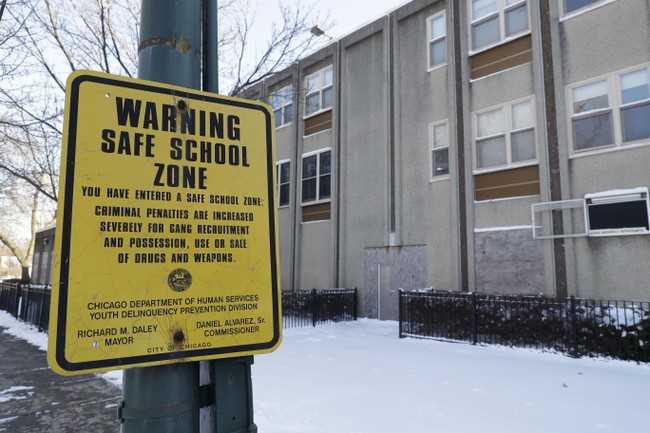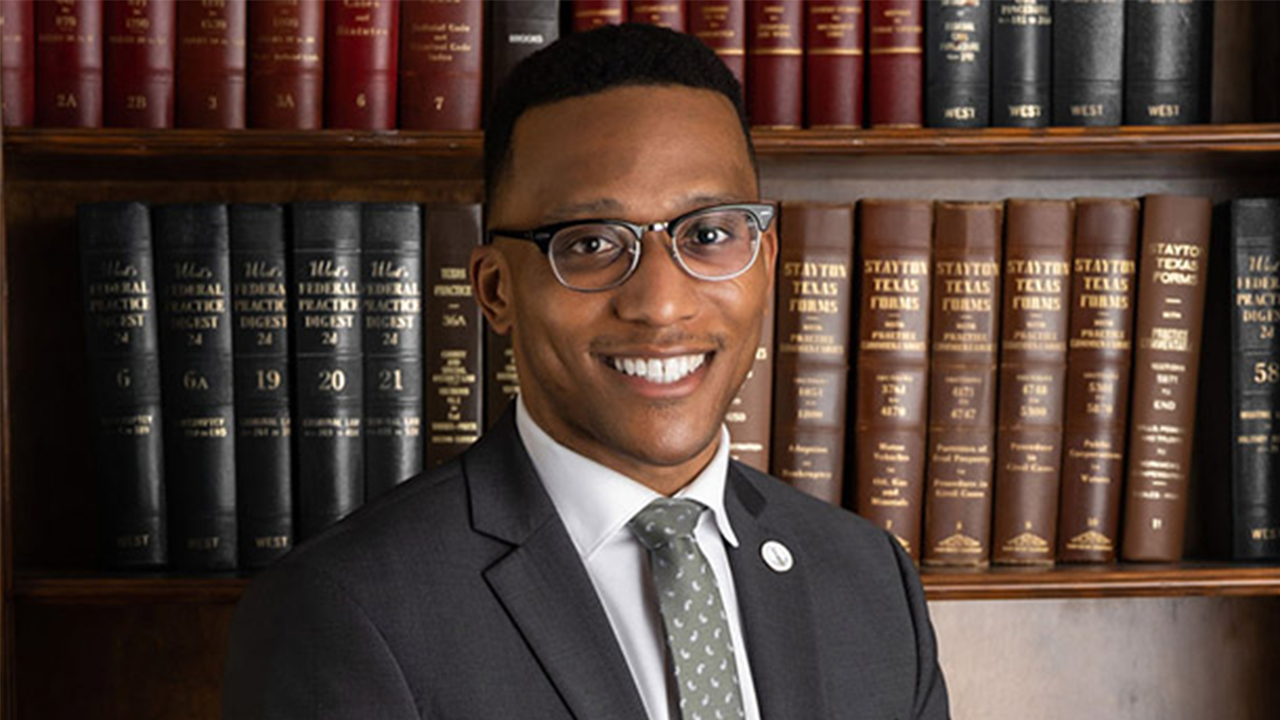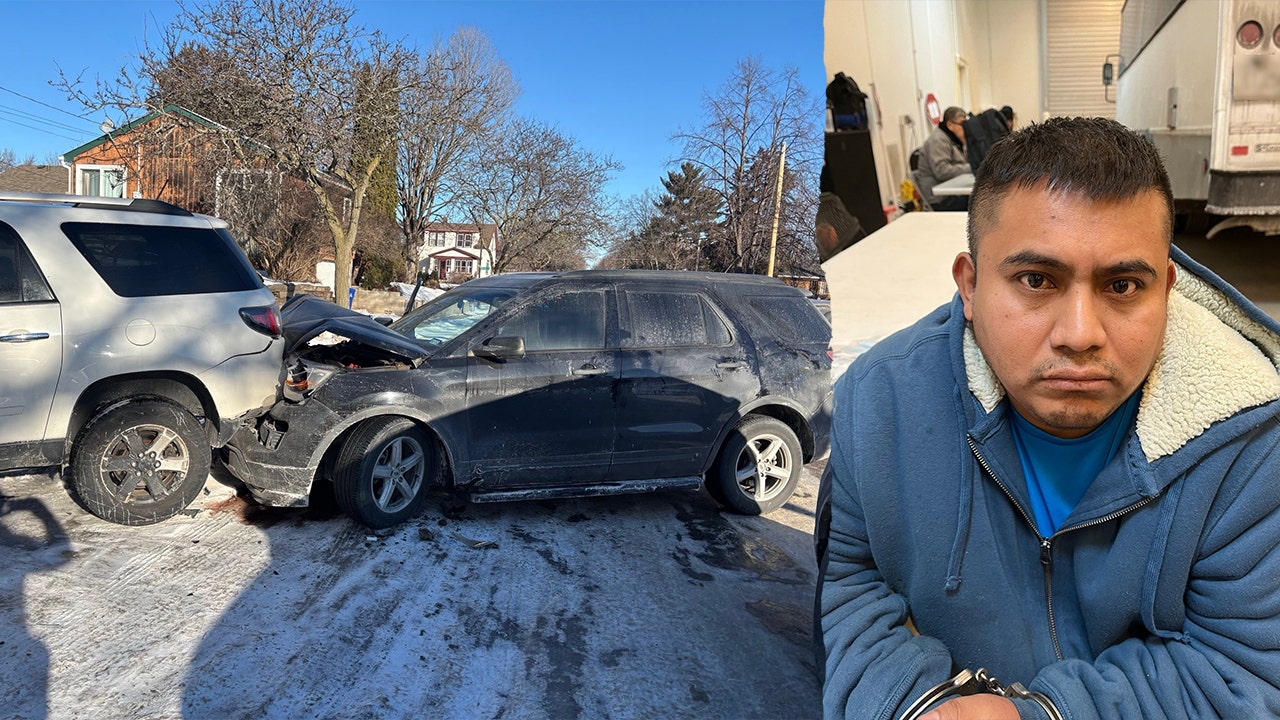A New Hampshire teenager is suing officials in his local school district, including the superintendent and principal of his high school, alleging that he was singled out for a “coercive interrogation” without his parents or an attorney present earlier this year where officials demanded they be allowed to search his vehicle for weapons based solely on the fact that he’s a lawful gun owner.
Jack Harrington’s lawsuit is being supported by the Second Amendment Foundation, with SAF Director of Legal Operations Bill Sack noting that “being public about exercising your private rights cannot be grounds for being harassed and searched on campus.”
“The apparent position of the school district here is ‘choose to exercise one right, give away another.’ That’s just not how it works. If simply being a gun owner is legal justification to be harassed and searched by authorities, what would stop them from submitting gun owners like Jack to searches every day? And what’s their proposed solution to avoid that abuse, that he sells his privately owned firearm?”
As detailed in the complaint, Harrington was removed from class back on April 24 and taken to the principal’s office, where he was questioned about a conversation he had with some other students while riding on a school bus. Harrington, who was 18 at the time and a legal gun owner, told his fellow students that he’d been pulled over by the police while he was off campus and not on the way to or from school or any school sponsored activities. Harrington told the officer that he had a handgun lawfully secured in the vehicle’s glove box, but as he told his classmates, though he was nervous, the incident ended without issue.
Somehow, the lawsuit alleges, school officials heard about the conversation and assumed without any evidence that Harrington might have a gun in his vehicle parked on campus that day.
The Interrogators asked Jack about the Bus Conversation and informed him they had received information that he owned a handgun. After confirming with Jack that he “was a gun owner,” the Interrogators asked Jack, “You have a gun in your truck sometimes, right?” Jack truthfully confirmed that he was an owner of firearms and that he sometimes transported a firearm in the Subject Vehicle, but also reiterated that he had never brought a firearm to school, and that he had no intention of doing so.
A school resource officer informed Harrington that they “had to” search his truck and that the teen had had no choice in the matter, despite his repeated refusal to provide consent. The SRO allegedly told Harrington, “you can say whatever you want, we’re going to search it anyway.”
While still under withering harassment from the Interrogators, Jack called [his parents] and asked them, “What should I do?” He also informed them that the Interrogators could hear all the details of their telephone conversation since they were still in the room with Jack, and the call was on speakerphone. Jack then informed his parents multiple times that the Interrogators “keep saying they have to search my truck, that they have no choice,” and that the Interrogators“won’t leave me alone,” confirming the level of distress that Jack was experiencing from the Interrogation.
While on speakerphone and audible to the Interrogators, Thomas and Betsi calmlyconfirmed that neither Jack nor they would consent to a search of the Subject Vehicle, even afteran audibly distressed Jack informed his parents that the Interrogators were telling him that “I have to let them search my truck,” and that [Superintendent] Crawford had ordered a search.
… After a lengthy, high-stress Interrogation conducted by multiple administrators and a school resource officer, in which Jack repeatedly refused to consent to a search, it became clea rto Jack that the Interrogators were, as [SRO] Deturris confirmed, going to search the Subject Vehicle “no matter what” he did. While still in [Principal] O’Rourke’s office, Jack stated “so you’re going to search it anyway.” The Interrogators took this statement as consent to their unsupported search and led Jack out to the school parking lot, where they forced the door to the Subject Vehicle to open. While in the parking lot, still surrounded by the Interrogators, Jack, with the keys in his pocket, silently watched [Vice Principal] McGinn force the Subject Vehicle’s locked doors open and search through his belongings, finding no firearm. McGinn, assisted by O’Rourke and Deturris, thoroughly investigated every area of the Subject Vehicle, confirming the truth of Jack’s repeated statements that he had not brought a firearm to school.
Harrington’s father Thomas showed up at the school as the officials and his son were walking back to the building, and confronted the principal after Jack told him his truck had been searched. According to the complaint, O’Rourke “immediately began to defend his untenable legal position, opining that ‘we did nothing illegal; we have a statement that Jack keeps a gun in his glovebox.’”
A day later, Thomas wrote a letter to school officials notifying them that they had:
.”.. executed an illegal, egregious pursuit of Jack, aiming to ensnare him in trouble and jeopardize his future. You removed him from class, interrogated him like a criminal, and relentlessly pressured him to consentto a search of his private truck. When he refused repeatedly—supported by my wife Betsi, and me, who loudly instructed him over the phone, in earshot of all, not to consent—you, Brian McGinn, proceeded to violate his truck in the mere minutes it took me to drive two miles to the school. Your search found nothing, exposing your incompetence and vindicating Jack.”
Defendants did not accept responsibility for their actions; instead, Crawforddoubled down on their course of brazen misconduct. Crawford, potentially aware of the constitutional liability that attached to the IllegalSearch, attempted to recharacterize the Illegal Search as a “view” rather than a search.
By letter to Thomas dated May 13, 2025, Crawford concluded: “Based upon my review of the facts in this matter, I have concluded that there was not a ‘search’ of the car your son brought to school. Therefore, I believe the administrators acted appropriately to confirm that there was not a firearm on school property. Possession of a firearm on school property is contrary to school policies and federal law.” In support of her conclusion, Crawford claimed that Harrington had allowed McGinn to “view” the contents of the Subject Vehicle’s glove box and that Jack had consented to this “view.” She further claimed that the “view” was acceptable since Deturris was present throughout the process.
If this was only “viewing” the contents of the glove box, and supposedly with Harrington’s consent, why did officials have to break in to his car?
Harrington alleges that school’s actions violated his Fourth Amendment right against unreasonable searches, given that the school had no probable cause to believe that Harrington had a gun in his vehicle that day. Harrington was 18 and legally allowed to own a firearm under state and federal law, but there was no specific allegation that he had ever brought a gun onto campus. Instead, it was his status as a young gun owner that apparently provoked school officials into demanding they be allowed to root around in his car, and into take that step even after he’d repeatedly declined to give them permission to do so.
Indeed there was no evidence or indicia of any of the above conduct – or that Jack had committed any crime—because Jack was and continues to be a lawful firearms owner who emphasizes safe, responsible storage and use of firearms. He had never brought a firearm to school, and certainly had no intention of ever doing so. Indeed, when Jack wasn’t carrying his handgun, he kept it safely stored at the Harringtons’ home… Simply put, the Interrogators presented Jack with evidence that he had followed the law in exercising his constitutional rights, and then used that evidence to suggest that he might break it; however, it is axiomatic that evidence of following the law and exercising one’s rights cannot be used to justify a search.
There are always two sides to every story, so we’ll see what these officials have to say when they reply, but it sure sounds like Harrington has a strong case here. And if it is true that it was only Harrington’s status as a legal gun owner that led to his search, the courts should absolutely find in his favor. To do otherwise would turn the Fourth Amendment on its head, and allow for gun owners to be stopped and searched in every “sensitive place” simply because they choose to exercise their Second Amendment rights in general.
Editor’s Note: The Schumer Shutdown is here. Rather than put the American people first, Chuck Schumer and the radical Democrats forced a government shutdown for healthcare for illegals. They own this.
Help us continue to report the truth about the Schumer Shutdown. Use promo code POTUS47 to get 74% off your VIP membership.
Read the full article here











![Gavin Newsom Admits Massive Fraud Has Been Going On in California for Years [WATCH] Gavin Newsom Admits Massive Fraud Has Been Going On in California for Years [WATCH]](https://www.lifezette.com/wp-content/uploads/2025/09/2025.09.24-11.11-lifezette-68d3d1e6b90a4.jpg)